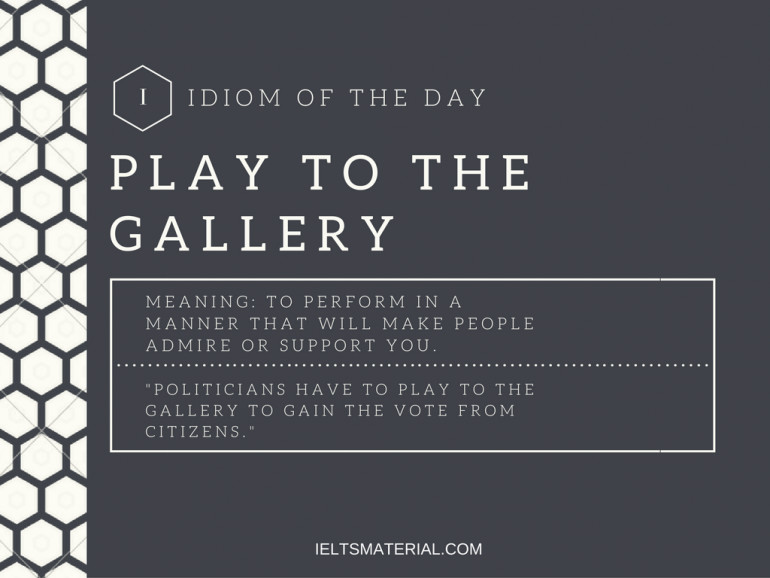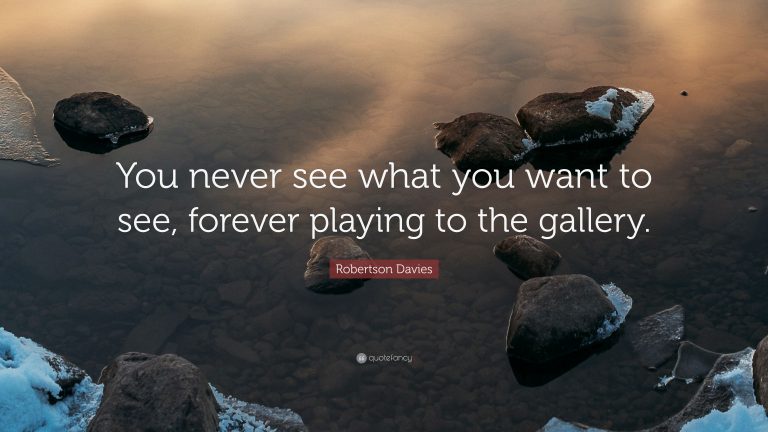
To behave in a way intended to make people admire or support you:
Politicians these days are more interested in playing to the gallery than exercising real influence on world events.
Cambridge Dictionary
Play to the gallery
To perform in a manner that will make people admire or support you.
“Politicians have to play to the gallery to Gain the vote from citizens”
Page Description
Watch Bram Bakker & Diederik Stapel
discuss psychological insights in
‘Playing to the Gallery’ and explore
‘Kijken in de ziel’ with scientists
in episode #4

Play to the Gallery: The Art of Performance and Public Perception
In the world of politics, entertainment, and even science, the term “play to the gallery” refers to performing in a way that appeals to the public’s emotions or desires, often for the sake of admiration or support. It is a tactic used to gain favor and influence, especially when the eyes of the crowd are upon you. For example, politicians frequently “play to the gallery” to win the votes of their citizens, carefully crafting their words and actions to align with popular expectations.
In this context, the idiom serves as a lens through which we can examine not only political strategies but also the broader impact of public image and perception. How do we balance authenticity and the need to appeal to others? This concept becomes even more intriguing when we explore the world of science, where the integrity of truth can sometimes be compromised for the sake of recognition and success.
In the videos below, we delve into the complexities of this idea through discussions with prominent figures such as Diederik Stapel and others, offering a deeper look at the personal and professional choices that shape public image.
Speel voor het publiek: De kunst van prestatie en publieke perceptie
In de wereld van politiek, entertainment en zelfs wetenschap verwijst de uitdrukking “speel voor het publiek” naar het optreden op een manier die inspeelt op de emoties of verlangens van het publiek, vaak om bewondering of steun te verkrijgen. Het is een strategie die wordt gebruikt om gunst en invloed te winnen, vooral wanneer de ogen van het publiek op je gericht zijn. Politici bijvoorbeeld “spelen voor het publiek” om de stemmen van de burgers te winnen, waarbij ze zorgvuldig hun woorden en daden afstemmen op de populaire verwachtingen.
In deze context dient de uitdrukking als een lens waardoor we niet alleen politieke strategieën kunnen onderzoeken, maar ook de bredere impact van publieke imago en perceptie. Hoe vinden we de balans tussen authenticiteit en de behoefte om anderen aan te spreken? Dit concept wordt nog intrigerender wanneer we de wereld van de wetenschap verkennen, waar de integriteit van de waarheid soms in het geding kan komen ten gunste van erkenning en succes.
In de onderstaande video’s duiken we dieper in deze materie door gesprekken met prominente figuren zoals Diederik Stapel en anderen, die een dieper inzicht bieden in de persoonlijke en professionele keuzes die het publieke imago vormen.
The idiom “play to the gallery” is often used to describe behavior or actions that are meant to gain attention, approval, or support from a particular audience, usually at the expense of substance or authenticity. Here are the key points of this idiom:
Seeking attention: “Playing to the gallery” means deliberately seeking attention or trying to impress a particular group of people, often by using showy or exaggerated behavior.
Appealing to popular opinion: It can also refer to catering to the opinions or tastes of the masses, rather than taking a principled or genuine approach. It may involve adopting popular ideas or opinions solely for the purpose of gaining popularity or approval.
Sacrificing substance for showmanship: “Playing to the gallery” can involve prioritizing style over substance, focusing on outward appearances or superficial aspects, rather than providing meaningful or thoughtful content.
Audience-centric behavior: It implies tailoring one’s actions or behavior to please a specific audience, rather than staying true to one’s own beliefs, values, or principles.
Potentially insincere or manipulative: “Playing to the gallery” may have a connotation of being insincere, manipulative, or opportunistic, as it often involves trying to win favor or gain advantage through calculated means.
Contextual dependency: The meaning and implications of “playing to the gallery” may vary depending on the context in which it is used. It can refer to behavior in various settings, such as politics, entertainment, advertising, or social interactions.
In summary, “playing to the gallery” typically refers to behavior or actions that are designed to gain attention, approval, or support from a specific audience, often at the expense of authenticity or substance. It can imply insincerity or manipulation, and a focus on style over substance.
1 Kijken in de ziel – Wetenschappers #4 – Over de schreef
6 jan. 2021
2 Bram Bakker in gesprek met Diederik Stapel, over Stapel
28 okt. 2015
Een open en kwetsbaar gesprek met voormalig hoogleraar Diederik Stapel. De ontmaskering van Stapel als wetenschapfraudeur heeft zijn leven verregaand op z’n kop gezet. Bram loopt met Diederik door de verschillende fases na de val. Stapel staat inmiddels model voor een hele reeks andere rommelende en frauderende wetenschappers. Hij lijkt daarbij wel het zwaarst getroffen. De gebeurtenissen hebben de band met zijn gezin versterkt en zijn vriendschappen verstevigd. Met Anton Dautzenberg schreef hij het boek “De Fictiefabriek”, maar hij verlangt nu inmiddels wel erg naar nieuwe kansen.
00:00 DIT IS CAFÉ WELTSCHMERZ; DONEER ONS!
(NL23 TRIO 0390 4379 13 tnv Coöp Weltschmerz, Amsterdam)
01:20 Intro Diederik Stapel
02:50 Geen baan
04:05 Waarom Stapel onvergelijkbaar gestraft?
07:15 “Vloeken in de kerk”
08:30 Oordeelmachine
09:50 Beter geworden in het vak
11:00 Zingeving en spiritualiteit
12:30 Terugblik
14:50 Zelfmoord
17:25 Slachtoffer van eigen daden
18:40 Karakter duiding
20:15 Waarom frauderen?
22:40 Complimenten
23:45 Sociale onthechting
25:20 Aandachtsverslaving
27:00 Nieuw boek; een oefening in eerlijkheid
29:25 Geloofwaardigheid
32:41 EINDE
http://www.whydonate.nl/cafe-weltschm…
3 Teleportation Gone Wrong
27 mei 2011